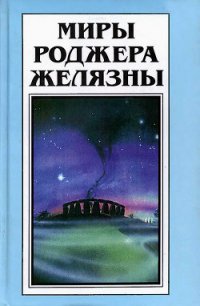Страх. История политической идеи - Кори Робин (читать книги регистрация .TXT) 📗
(2) Frderalist 47, p. 303. О влиянии Монтескьё см.: Bernard Bailyn, The Ideological Origins of the American Revolution (Cambridge: Harvard University Press, 1967), pp. 272–301; Gordon S. Wood, The Creation of the American Republic 1776–1787 (New York: Norton, 1969), pp. 150–161, 446–453, 602–606; Jack N. Rakove, Original Meanings: Politics and Ideas in the Making of the Constitution (New York: Vintage, 1996), pp. 245–287.
(3) Federalist 10, 51; pp. 122–128, 319–320.
(4) United States v. Brown, 381 U.S. 437, 443 (1965). См. также: Laurence H. Tribe, American Constitutional Law, vol. 1 (New York: Foundation Press, 2000), 3rd ed., p. 122; Hayek, p. 185.
(5) Ср.: Telford Taylot, Grand Inquest: The Story of Congressional Investigations (New York: Simon and Schuster, 1955); David R. Mayhew, Divided We Govern: Party Control, Lawmaking, and Investigations, 1946–1990 (New Haven: Yale University Press, 1991).
(6) Walter Goodman, The Committee: The Extraordinary Career of the House Committee on Un-American Activities (Baltimore: Penguin, 1968), pp. 168–169; Robert Griffi th, The Politics of Fear: Joseph R. McCarthy and the Senate, 2nd ed. (Amherst: University of Massachusetts Press, 1987), pp. 58, 89, 104–113, 206–207, 210–212, 303–304. См. также: David W. Rohde, Parties and Leaders in the Postreform House (Chicago: University of Chicago Press, 1991), pp. 4–5; Nelson W Polsby, «The Institutionalization of the House of Representatives», American Political Review 62 (1968): 144–168.
(7) Earl Latham, The Communist Conspiracy in Washington: From the New Deal to McCarthy (Cambridge: Harvard University Press, 1966), p. 381.
(8) Carl Bernstein, Loyalties: A Son’s Memoir (New York: Simon and Schuster, 1989), pp. 33, 105–106, 113, 115–116, 118–121. Курсив мой. — Авт.
(9) Latham, p. 381.
(10) David Caute, The Great Fear: The Anti-Communist Purge Under Truman and Eisenhower (New York: Simon and Schuster, 1978), p. 96.
(11) Thirty Years of Treason: Excerpts from Hearings Before the House Committee on Un-American Activities, 1938–1968, ed. Eric Bentley (New York: Viking, 1971), p. 333; Ellen Schrecker, Many Are the Crimes: McCarthyism in America (Boston: Little, Brown, 1998), p. 329.
(12) Alan D. Harper, The Politics of Loyalty: The White House and the Communist Issue, 1946–1952 (Westport: Greenwood, 1969), pp. 23–25; Memoirs of Harry S. Truman 1946–1952: Years of Trial and Hope (New York: Da Capo, 1956), p. 281; Richard M. Free-land, The Truman Doctrine and the Origins of McCarthyism (New York: New York University Press, 1985), pp. 120–121; Griffith, pp. 40–43, 90–93; Latham, pp. 364–365; Caute, pp. 25–29; Schrecker, Many Are the Crimes, pp. 209ff.
(13) Следует помнить, что федерализм был уступкой, навязанной отцам-основателям. Мэдисон был националистом и выступал за сильное центральное правительство как гаранта против своевластия штатов и местных властей. Таких же взглядов придерживался и Гамильтон, который видел в центральном правительстве инструмент создания континентальной империи. Движимый своими националистическими взглядами, Мэдисон первоначально предлагал схему, которая была недалека от идеи «полной ликвидации штатов». Но его национализму пришлось отступить перед лицом всеобщей лояльности штатам. Rakove, p. 169.
(14) United States v. Lopez (514 U.S. 549). См. также: Milton Friedman, Capitalism and Freedom (Chicago: University of Chicago Press, 1962, 2002), p. 3; Hayek, pp. 183–186.
(15) William J. Brennan, Jr., «State Constitutions and the Protection of Individual Rights», Harvard Law Review 90 (1977): 489; William J. Brennan, Jr., «The Bill of Rights and the States: The Revival of State Constitutions as Guardian of Individual Rights», New York University Law Review 61 (1986): 535–553; Bruce Ackerman «The Political Case for Constitutional Courts», в изд.: Liberalism without Illusions: Essays on Liberal Theory and the Political Vision of Judith M. Shklar, ed. Bernard Yack (Chicago: University of Chicago Press, 1996), pp. 212–213, 215–216; Ackerman, We the People, pp. 254–257; George Kateb, The Inner Ocean: Individualism and Democratic Culture (Ithaca: Cornell University Press, 1992), pp. 42, 70. Блестящую критику можно найти в изд.: Edward L. Rubin, Malcolm Feeley, «Federalism: Some Notes on a National Neurosis», UCLA Law Review, 41 (1994): 903; John D. Donahue, Disunited States (New York: Basic Books, 1997).
(16) Alexis de Tocqueville, Democracy in America, trans. George Lawrence, ed. J.P Mayer (New York: Harper and Row, 1969), pp. 62–63.
(17) Amar, p. 123.
(18) Эту идею не следует смешивать с убеждением Хайека в том, что для осуществления насилия оба уровня власти должны действовать согласованно. Hayek, p. 185.
(19) Thomas I. Emerson, David Haber, Norman Dorsen, Political and Civil Rightsin the United States, vol. 1 (Boston: Little, Brown, 1967), pp. 99, 192, 194–205; Caute, pp. 70–74, 568–569.
(20) Caute, pp. 339, 341–342; Ralph S. Brown, Jr., Loyalty and Security: Employment Tess in the United States (New Haven: Yale University Press, 1958), pp. 92–93, 96–97, 106–107, 169, 178, 181; Emerson, Haber, Dorsen, pp. 322–339, 348–349.
(21) http://www.pub.das.state.or.us/LEG_BILLs/PDFS/SB742.pdf <последнее обновление 30 марта 2004>. Lee Douglas, «Oregon Law Would Jail War Protesters as Terrorists», Reuters News Service (2 апреля 2003); Nancy Chang, Silencing Political Dissent: How Post-September 11 Anti-Terrorism Measures Threaten Our Civil Liberties(New York: Seven Stories Press, 2002), pp. 44–45.
(23) Emerson, Haber, Dorsen, pp. 252, 265.
(24) The COINTELPRO Papers: Documents from the FBI’s Secret Wars Against Dissent in the United States, eds. Ward Churchill, Jim Vander Wall (Cambridge: South End Press, 1990, 2002), p. 217.
(25) «Red Squad Hits Denver», The Progressive (14 марта 2002) ( http:// www.progressive.org/webex/wxmc031402.html) <последнее обновление 30 марта 2004>; Tom Gorman, «Spy Files Anger Many in Denver», Los Angeles Times (24 сентября 2002). Другие современные примеры можно найти в изд.: Ian Demsky, «TBI Took Names at MTSU Peace Rally», The Tennessean (6 марта 2003), p. 1A; Ian Demsky, «Taking Names Was Mistake, TBI Says», The Tennessean (7 марта 2003), p. 1A; Matthew Rothschild, «Cop Makes Midnight Raid of Teacher’s Classroom», The Progressive (10 мая 2003) ( http:// www.progressive.org/mcwatch03/mc051003.html) <последнее обновление 30 марта 2004>; Eric Lichtblau, «F.B.I. Scrutinizes Antiwar Rallies», New York Times (23 ноября 2003), p. A1.
(26) Emerson, Haber, Dorsen, pp. 247–249, 269; Brown, pp. 110–112.
(27) Richard M. Fried, Nightmare in Red: The McCarthy Era in Perspective (New York: Oxford University Press, 1990), pp. 105, 159; Emerson, Haber, Dorsen, p. 212; Schrecker, Many Are the Crimes, pp. 391–394.
(28) Rotschild, «Red Squad Hits Denver».
(29) По мнению многих специалистов, когда мы сводим верховенство закона к «закону правил», то есть исключительно к процедурам, то поступаем так не в интересах закона, который защищает права личности, утверждает идеалы справедливости и равенства. Эти исследователи говорят: верховенство закона основывается на принципах справедливости, если угодно, на высшем законе. Ограничивая свое рассуждение процедурными вопросами, я не намереваюсь утверждать, что верховенство закона исключает эти фундаментальные требования. Напротив, мне по душе интерпретации, в которых эти требования ставятся во главу угла. Я согласен с тем, что процедуры часто содержат в себе, пусть даже в неявной форме, существенные принципы справедливости. Здесь я сосредоточиваюсь на одних только процедурных вопросах, поскольку именно юридические процедуры, как считают многие авторы, исключают или затрудняют управление посредством страха. Интерпретации процедур см. в: Antonin Scalia, «The Rule of Law as a Law of Rules», 56 University of Chicago Law Review 1175 (1989); Joseph Raz, The Authority of Law (New York: Oxford University Press), p. 210. Более независимые интерпретации см. в: John Rawls, A Theory of Justice (Cambridge: Harvard University Press, 1971), p. 58; Judith Shklar, Legalism: Law, Morals, and Political Trials (Cambridge: Harvard University Press), pp. 39–47, 120–121; Ronald Dworkin, A Matter of Principle (Cambridge: Harvard University Press, 1985), pp. 9-28.




